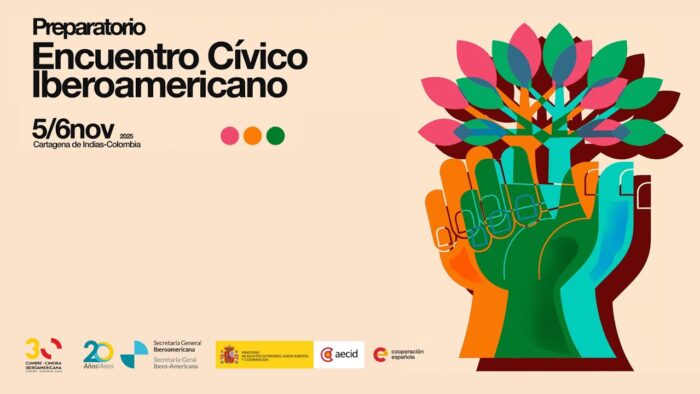Organization: UNOPS
Country: Spain
Closing date: 15 May 2017
Background Information – Job-specific
The SAN Engineer will carry out his/her tasks within SGITT Data Centre Support Section.
Under the overall supervision of UNOPS Senior Programme Manager, the incumbent works under the guidance of Chief Data Centre Support at UNSB-V and provides specific expertise in the definition of the architectural strategy for the storage infrastructure including: storage arrays, SAN switches, tape libraries, fibre I/O adapters and tools to monitor performance, availability and capacity.
Functional Responsibilities
- Function as the technical expert in storage system implementation, systems upgrade and systems integration;
- Monitor Storage System operations and verify systems availability. Interact with network engineers and systems engineers to proactively facilitate integration of storage array systems into enterprise ICT infrastructure. Perform tasks related to storage provisioning and host integration;
- Function as 2nd tier support for analyzing, troubleshooting and implementing solutions related to storage technical problems;
- Function as a technical resource in storage system support for storage service continuity solution implementation and provide efficient data recovery capability in case of disaster
- Perform technical evaluation of product and systems related to Storage infrastructure and continuity solutions;
- Actively involve with third parties engaged in Storage infrastructure projects to ensure acceptable quality of service delivery and, prevent information security incidents;
- Perform the functions of systems backup and recovery administrator, and data replication process owner;
- Propose efficient, resilient and reliable data replication solution from UN Missions to UNSB-V;
- Propose a highly available storage and backup environment to eliminate single points of failure;
- Implement data storage management guidelines, policies, standards, procedures and other documentations for DPKO and DFS field missions;
- Responsible for keeping track of existing storage usage and making recommendation for growth
- Support regular maintenance of operational resilience (OR) plans and conduct periodic exercises to verify OR readiness;
- Provide necessary training and support missions in storage management, backup and restore operation, as required.
- Define technical specifications and assist with capacity planning and budget estimates etc for SAN equipment;
- Assist DPKO and CITS Missions on site or remotely on any ad-hoc projects and tasks as required especially with OR planning and exercises. Perform tasks associated with DPKO and United Nations operations as authorized.
- Supervise SAN technicians and assess their performance on regular basis
- Build capacity through on-the-job training or formal training
- Ensure all procedures in handling storage and backup tasks are documented by staff
- Assign duty officer, focal points in various DRX and projects, and backstops
- Performs other related duties as required.
The [incumbent/personnel] is responsible to abide by security policies, administrative instructions, plans and procedures of the UN Security Management System and that of UNOPS
Functional competencies
Professionalism: Hands-on technical training and problem-solving skills, good knowledge of relevant ICT policies, structure and strategy as it relates to area of assignment; ability to assess storage area network needs; technological background and experience in SAN design and implementation. Experience in working in a process oriented service support and delivery environment. Foundations certification in ITIL Service management is desirable.**
Client Orientation: Ability to identify and analyse clients’ needs and develop appropriate technology to meet business requirements.**
Commitment to Continuous Learning: Willingness to keep abreast of new developments in the field of information technology.**
Communications: Good communication (spoken and written) skills, including the ability to explain and present technical information, effectively train/advise users on systems related issues, applications, etc., and prepare written documentation in a clear, concise style.**
Teamwork: Strong interpersonal skills and ability to establish and maintain effective partnerships and working relations in a multi-cultural, multi-ethnic environment with sensitivity and respect for diversity.**
Planning and Organizing: Ability to organize, plan and implement work assignments, juggle competing demands and work under pressure of frequent and tight deadlines.**
Education/Experience/Language requirements
Education Advanced university degree (Master’s degree or equivalent) preferably in Computer Science, Information Systems, Mathematics, Statistics, or relevant field. A first level University degree in a relevant field with two additional years of relevant experience may be considered in lieu of the advanced university degree.
Work Experience:
A minimum of 5 years’ experience in providing engineering support for IT systems, preferably in large data centres with experience in: Operating systems Windows 2005/2008, Linux.
A minimum of 3 years’ experience in enterprise storage infrastructure experience (EMC CX, Clariions, Celerra, Centerra, HP Storage works and layered software that support high availability, data safety and storage manipulations (EMC Recover Point, Snap view, SRDF, SAN Copy etc.)
A minimum of 3 years’ experience in backup and recovery solutions based on EMC Legato network.
A minimum of 3 years’ experience in NAS Operation and management (EMC Oncourse).
A minimum of 3 years’ experience in data replication architecture and products;
A minimum of 3 years’ experience in enterprise data backup and recovery operations.
Languages: Fluency in spoken and written English; knowledge of a second UN language is an advantage.
Contract type, level and duration
Contract type: Fixed Term Appointment
Contract level: P3
Contract duration: 1 year (renewable subject to funds availability and satisfactory performance)
For more details about United Nations staff contracts, please follow this link*:* https://www.unops.org/english/Opportunities/job-opportunities/what-we-offer/Pages/UN-Staff-Contracts.aspx
Additional Considerations
- Please note that the closing date is midnight Copenhagen time
- Applications received after the closing date will not be considered.
- Only those candidates that are short-listed for interviews will be notified.
- Qualified female candidates are strongly encouraged to apply.
- For staff positions only, UNOPS reserves the right to appoint a candidate at a lower level than the advertised level of the post
- The incumbent is responsible to abide by security policies, administrative instructions, plans and procedures of the UN Security Management System and that of UNOPS.
It is the policy of UNOPS to conduct background checks on all potential recruits/interns.
Recruitment/internship in UNOPS is contingent on the results of such checks.
*Background Information – UNOPS
UNOPS supports the successful implementation of its partners’ peacebuilding, humanitarian and development projects around the world. Our mission is to serve people in need by expanding the ability of the United Nations, governments and other partners to manage projects, infrastructure and procurement in a sustainable and efficient manner.
Working in some of the world’s most challenging environments, our vision is to advance sustainable implementation practices, always satisfying or surpassing our partners’ expectations.
With over 7,000 personnel spread across 80 countries, UNOPS offers its partners the logistical, technical and management knowledge they need, wherever they need it.
A flexible structure and global reach means that we can quickly respond to our partners’ needs, while offering the benefits of economies of scale. *
Background information- ECR
Based in Geneva, the Europe and Central Asia Regional Office (ECR) supports UNOPS offices throughout the region through: management, financial and programmatic oversight of global and country-specific portfolios, clusters and operations centres, including hosting services; fund and management advisory services; project implementation; procuring goods and services; and managing human resources.
ECR ensures that projects are executed to the highest standards, providing a shared knowledge base and ensuring that best practices and lessons learned are disseminated between business units and projects across the entire region.
ECR strategy is to:
- Strengthen UNOPS role in operationalizing the Sustainable Development Goals with particular emphasis on health, environment and economic development.
- Position UNOPS in the Balkan sub-region, the Caucasus and Central Asia.
- Strengthen the implementation of ECR global and regional programmes, with revitalized partnerships in infrastructure, procurement and project management.
ECR operates global portfolios from offices in Geneva, Brussels and New York, and country-specific programmes from its operations and project centres located in Eastern Europe and Central Asian countries.
Background Information – Development Group Cluster
Based in the New York, the UNOPS Development Group Cluster supports diverse partners with their peacebuilding, humanitarian and development operations. For example, within the United Nations Development Programme, the Cluster works with the Bureau for Policy and Programme Support and the Office of South-South Cooperation.
The cluster also supports the United Nations Secretariat, as well as a broadening community of other New York-based United Nations organizations in the delivery of project management and implementation services.
How to apply:
To apply for a vacancy, please create a UNOPS Jobs Account. This involves submitting details such as personal information, education, experience, languages, skills and other information.
https://jobs.unops.org/Pages/ViewVacancy/VADetails.aspx?id=12249


